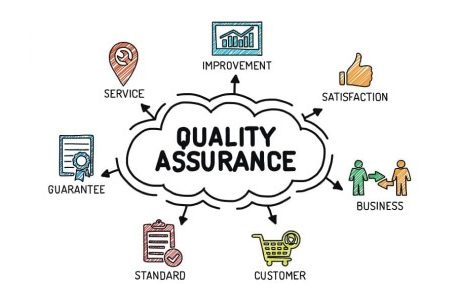- Is photography a good career path in 2021?
- How many jobs are available in the photography industry?
- What are the best paying jobs in photography?
There are many routes you can go if you are thinking about pursuing your career in the photography industry. You can get into photography in both traditional and non-traditional ways.
Many start their own photography business while others get a degree in photography and then start taking photography classes. There are many individuals who believe that photography is just a way to make money and nothing else.
However, you should not put this into your thoughts. Photography is an art and a passion for many. And to become a successful photographer, you need to have detailed knowledge about modern photography as well as traditional photography.
Is Photography A Good Career Path In 2021?
The answer to this question is an absolute Yes. This is one of the fastest emerging career choices among millennials not only in the United States but all over the world.
Some basic skills required to become a photographer include observation power, natural instinct, intelligence, a great degree of discipline, curious and perceptive mind.
The photographer must have the talent to intermingle the details with the imaginative ability to capture a great picture in the camera. Images play a vital role in our lives because they give us the ability to imagine things better.
Besides, photography is truly a rewarding career because there are endless opportunities available, and at the same time, you can get high pay as a professional photographer. But according to the US Bureau of Labor Statistics, the outlook for photographers is a -4% decline through 2029.
What Do Photographers Do?
Photographers use their composition skills, creativity, and technical expertise to create and preserve images that tell a story or record an event. To reduce your time and effort, we have listed the important work of photographers.
- Archive and manage imagery
- Maintain a digital portfolio to analyze the work
- Use photo-enhancing software
- Improve the subject’s appearance with artificial and natural light
- Capture subjects in commercial-quality photographs
- Use several lighting equipment and photographic techniques
- Plan and analyze the composition of photographs
- Market and advertise services to attract clients.
How Many Jobs Are Available In The Photography Industry?
In California alone, you will find more than five thousand jobs available in the photography industry. According to our research, the number of people employed as photographers has been increasing at a rate of less than one percent from 2018 to 2019.
As of 2021, there are more than 2.5 lakhs people employed in the photography sector. Now, let’s discuss the top photography career paths or best paying jobs in the photography industry in 2021.
i). Scientific Photographer
A scientific photographer takes the art of photography and implements it in industrial, medical, research, and academic disciplines. They possess extra knowledge in areas such as chemistry, biology, medicine, or engineering that assist them in photographing scientific events.
ii). Freelance Photographer
Freelancing has been the most common career choice among photographers. Freelance photographers must-have business management skills in order to do photography freelancing in weddings, scientific, advertising, fashion, etc.
iii). Fashion Photographer
A fashion photographer is one of the best areas in the photography industry. The bulk of fashion photography is carried out in several places around the globe. This industry is high in demand, and it is undoubtedly going to hold your attention for a while.
iv). Advertising Photographer
As an advertising photographer, you can offer freelance services in one or more industries. They are connected with the photographic departments of photographic studios and advertising agencies. Besides, you might be tasked with taking photos that can help to sell a specific service or a product.
v). Wedding Photographer
A wedding photographer can be an amazing choice for you in the long run. The demand for a wedding photographer is high, and the number is certainly going to increase in the future. At weddings, naturally occurring interactions happen, and you need to capture those beauties.
vi). Commercial Photographer
Commercial or Industrial photographers take pictures of the interiors and exterior of factories, merchandise, and machinery indoors and outdoors. These can be utilized for advertising, selling, annual reports, and company brochures.
vii). Lifestyle Photographer
Lifestyle photography is also one of the best careers in the photography industry. The job opportunities in lifestyle photography will mostly be self-created. You can grow your portfolio in this sector and become more established.
How To Become A Photographer?
Anyone with a camera can be a photographer! However, in order to become a professional photographer, you need to know how to operate your camera’s frames so that your subject is highlighted professionally.
Now, let’s discuss the effective steps to become a photographer.
a). Find A Passion For Photography
Many photographers create a love for their art and craft as teenagers. It doesn’t matter what type of photographs you take; you must have a passion for capturing an image that reveals its core.
To become a photographer, cinematography and film should be an early passion. These are expressive forms of photography.
b). Academic Training
You must seek out formal training once you’ve established that you are driven to be a photographer. In this training, you will understand the importance of discipline in your art form.
Moreover, you will learn how to print and manipulate your photographs, the properties of light, the technical aspects of your camera, etc.
c). Internship
You need to work as an intern to gain the maximum experience required to become a professional photographer. You can do an internship with a commercial photographer who spends the entire day shooting products for catalogs.
d). Career Paths
Once you have built your experiential learning and formal training, you can look out into the professional world. After understanding the key elements of the photography world, you can start your own startup.
On the other hand, you can work as an employee for a marketing firm, magazine, and newspaper.
The Final Thoughts
Is Photography A Good Career Path in 2021? A Photograph explains emotions and contains the humanity of the moment. There are potential career paths in the Photography industry, and you can become a well-known Photographer if you are truly determined to be. Consider both the positive and negative perspectives and then decide the best career path you want to pursue.


























